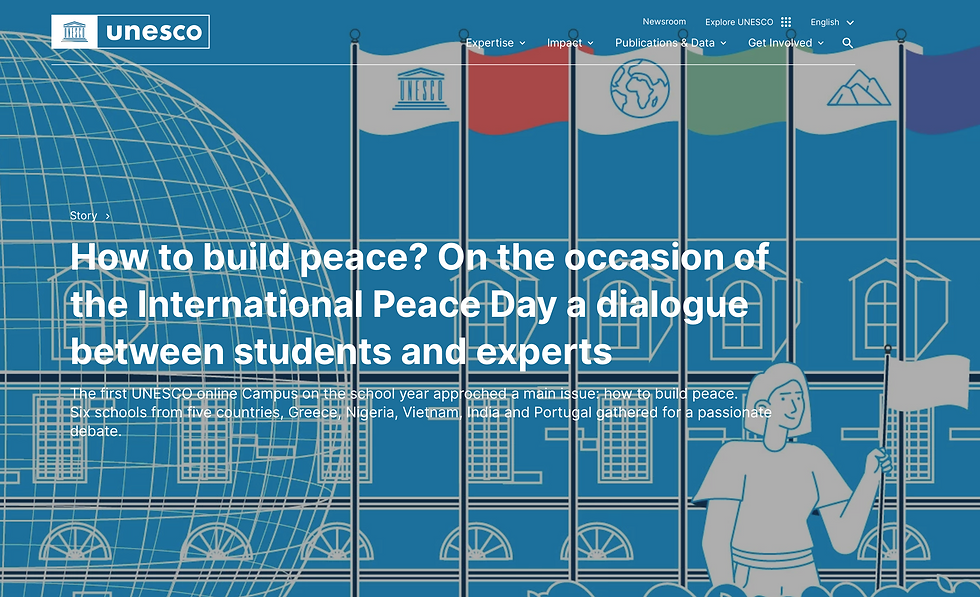Building Peace: A Lifelong Process, Not Just an Endgame
- Chase Glazier

- Sep 30, 2023
- 2 min read

"Building peace is not a conclusion, it's a process," Kuany Kiir Kuany, Project Officer in the Section of Global Citizenship and Peace Education at UNESCO remarked. This sentiment was a focal point of a recent enlightening discussion involving experts and students from around the globe. For many, this dialogue shattered the common misconception that peace is simply an end state; an ultimate goal achieved once and forever. In reality, peacebuilding requires continuous effort, understanding, and adaptation.
In an enlightening session organized by UNESCO, experts like Kuany, Léonie Evers from UNESCO’s Culture Sector, and Saurea Didry Stancioff, the West Africa Program Manager of Promediation, came together to converse with students from six high schools located in various parts of the world. Their goal? To shed light on how they work for peace and to inspire the younger generation to engage in peacebuilding.
Didry Stancioff emphasized the universal nature of conflict, highlighting that disagreements, whether among school children, within families, or involving entire nations, have common origins. Breakdowns in communication often lead to misunderstandings which, if not addressed, can escalate to grave proportions. She also highlighted the role of mediation, stressing its importance in bridging divides and fostering understanding. The mediator's task is to articulate the needs of all parties involved, creating an environment where a neutral and mutual agreement can emerge.
Léonie Evers, drawing on her experience in emergency preparedness and response, highlighted the connection between culture and peace. In her words, "Behind any pile of stone, there are people targeted by a conflict." When we rebuild following conflict, it’s not just about physical reconstruction; it’s also about healing the soul of a community. Recognizing and preserving cultural identities can play a vital role in post-conflict healing and recovery.
But it was perhaps Kuany’s emphasis on the role of education in peacebuilding that struck a chord with me. Schools, according to him, are platforms that shape future generations. They can either perpetuate divisions or cultivate critical thinkers, promote inclusivity, and ensure literacy. All vital tools in the peacebuilding arsenal.
This unique interaction was not just about experts passing down knowledge, but about engaging a curious and eager audience of 148 students. These young minds, equipped with resources provided by UNESCO, are now more prepared to carry on the conversation on peace in their respective schools.
While many may perceive peace as a destination, it is, in essence, an ongoing journey. Every individual, at all levels, can and should play a role in this continuous process. Thanks to initiatives like this one, facilitated by 6C Conseil and supported by TECH4ALL, more of our youth are being guided onto the path of peacebuilding, ensuring a more harmonious future for us all.





Comments